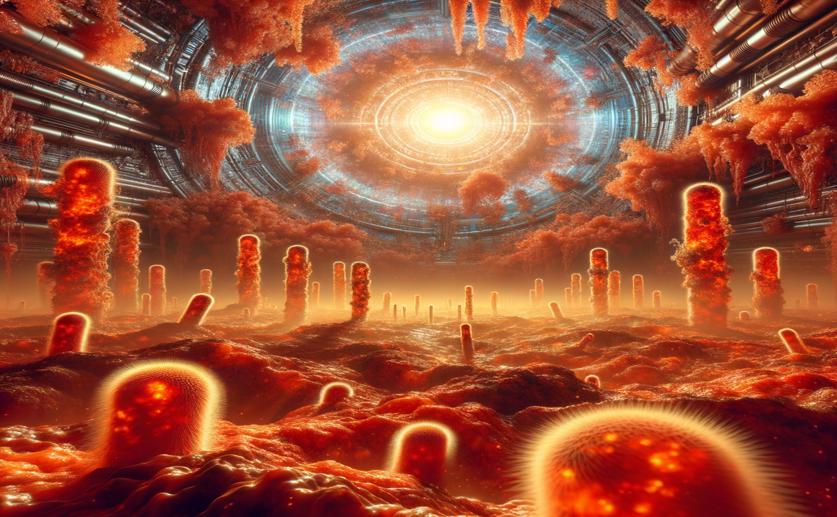
Heat and Radiation Greatly Reduce Microbe Survival in Deep Underground Storage
Greg Howard
12th July, 2024

Image Source: Natural Science News, 2024
Key Findings
- The study by the Technical University of Liberec examined how heat and irradiation affect microorganisms in bentonite used in deep geological repositories (DGRs) for nuclear waste
- High temperatures (90°C and 150°C) significantly reduced microbial viability in bentonite, more so than irradiation
- Microbial recovery was observed in bentonite powder samples heated to 90°C for up to six months, but not after 12 months or at 150°C
EnvironmentSustainabilityBiotech
References
Main Study
1) Dramatic loss of microbial viability in bentonite exposed to heat and gamma radiation: implications for deep geological repository
Published 11th July, 2024
https://doi.org/10.1007/s11274-024-04069-w
Related Studies
2) Survivability and proliferation of microorganisms in bentonite with implication to radioactive waste geological disposal: strong effect of temperature and negligible effect of pressure.
3) Microbial Degradation of Cellulosic Material and Gas Generation: Implications for the Management of Low- and Intermediate-Level Radioactive Waste.
4) The impact of gamma radiation on sediment microbial processes.



 19th May, 2024 | Greg Howard
19th May, 2024 | Greg Howard